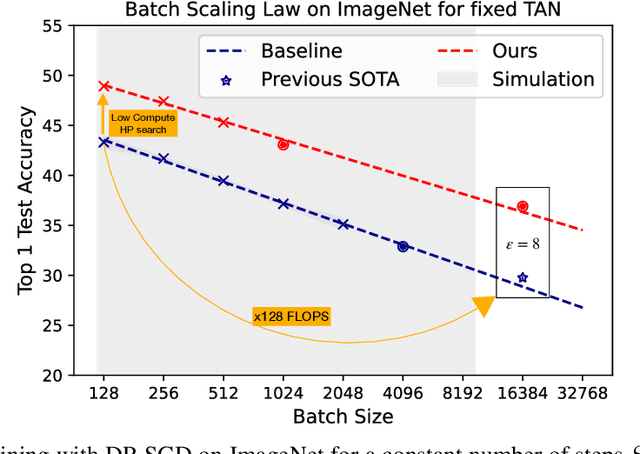TAN without a burn: Scaling Laws of DP-SGD
Paper and Code
Oct 07, 2022



Differentially Private methods for training Deep Neural Networks (DNNs) have progressed recently, in particular with the use of massive batches and aggregated data augmentations for a large number of steps. These techniques require much more compute than their non-private counterparts, shifting the traditional privacy-accuracy trade-off to a privacy-accuracy-compute trade-off and making hyper-parameter search virtually impossible for realistic scenarios. In this work, we decouple privacy analysis and experimental behavior of noisy training to explore the trade-off with minimal computational requirements. We first use the tools of R\'enyi Differential Privacy (RDP) to show that the privacy budget, when not overcharged, only depends on the total amount of noise (TAN) injected throughout training. We then derive scaling laws for training models with DP-SGD to optimize hyper-parameters with more than a 100 reduction in computational budget. We apply the proposed method on CIFAR-10 and ImageNet and, in particular, strongly improve the state-of-the-art on ImageNet with a +9 points gain in accuracy for a privacy budget epsilon=8.
 Add to Chrome
Add to Chrome Add to Firefox
Add to Firefox Add to Edge
Add to Edge